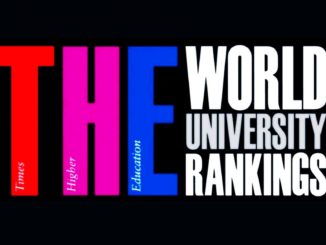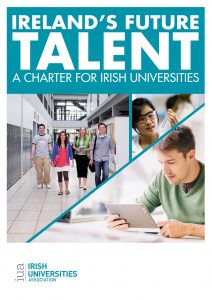
Dublin City University’s Access Service, a group which helps prospective students who may not consider university as a viable option due to financial or social reasons, says there has been a huge increase in interest in the programme.
The College View spoke to Cathy McLoughlin of DCU’s Access service.
“Applications have increased significantly in recent years. Access student intake has increased by 25% since last year and 75% in the last two years…undoubtedly students are struggling more as their families are less able to give them financial help”, McLoughlin said.
“The Access Service does its best to help students by promptly paying the scholarship money, running a budgeting workshop during orientation and bringing other sources of funding to the attention of the students such as the Student Assistance Fund”, she added
Third level fees are set to increase again in the coming budget and McLoughlin feels this could be very difficult for students. “If fees are increased without putting in place a mechanism for students to source funding such as a student’s loan scheme then this could be detrimental.”
McLoughlin commented on the delay in grant payments this year. “The delay in the SUSI grant payment has caused untold hardship for students with rent and travel costs. Thankfully DCU has been understanding and students have not been penalised by having their accounts or library access restricted.”
The Access programme had previously only been available to students coming from schools in socio economically disadvantaged areas but this has changed and now any potential student can apply for the Access route. However McLoughlin doesn’t believe this is solely the cause for the recent increase in applications.
“I think it is not a case of either, but both factors that are at work, though the access is targeted at the long term socio economically disadvantaged rather than the newly unemployed. I do not think there is an easy answer to the fees question but questions have to be asked if families are in a position to pay for their children’s second level education then surely it should carry through to 3rd level.”
The increase in Access applications is also echoed in other colleges across the country. Rose Ryan, the acting director of NUI Maynooth’s Access programme has also seen an increase in recent years.
“There has been a significant increase in the number of students supported by NUI Maynooth’s Access programme over the last number of years. In 2012/13 NUI Maynooth will support 8% of all full time first year entrants”, she told The College View.
Ryan said she has seen an increase in the amount of students asking for extra funding and that students are also becoming very anxious about debt and the delay in the processing of grant applications which has caused massive uncertainty for themselves and their family.
These points are also echoed in Dublin Institute of Technology’s Access programme as Project officer, John Delap told The College View. “We have an increase in the number of incoming access students in the last few years. Students do approach our team with financial problems. Access students have access to funding which is ring fenced for them. This is means tested funding and is in addition to the SUSI grant.”
Despite this extra funding, without the SUSI grant students are under a lot of pressure financially as Joy Newton, Chairperson of DCU’s student Access Society told the College View.
“The delay with the SUSI grants is a worry for most students. It’s a very stressful time. I know students who have rent and accommodation bills to budget for and have deadlines to have them paid by and so are taking out loans which have high interest until the grants come out. This completely defeats the purpose of the grant.
“If fees are increased people from areas that access support won’t be able to cope with paying huge chunks towards fees and not having any other money to spend on rent or food. Therefore the cons outweigh the pros and many will give up and not go to college.”
Adam Higgins




Leave a Reply